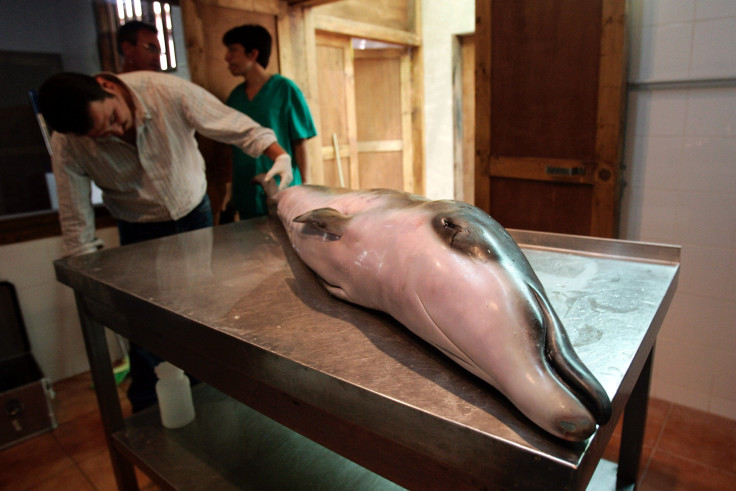Rare beaked whale with mysterious extra teeth baffles Australian experts; Teeth not deformity but ‘evolutionary throwback’

In February, a rare beaked whale washed up on the shores of a South Australian beach. However, scientists were baffled as the beaked whale was discovered with two mysterious extra teeth. South Australian Museum researchers said that such teeth were previously unseen in beaked whales. Now, they are calling it an “evolutionary throwback.” The female juvenile beaked whale was found dead on Waitpinga beach, near the tourist town of Victor Harbor.
After the scientists discovered the extra teeth, they appealed to fellow colleagues across the world including Smithsonian Institute in the US. Unfortunately, no one could arrive at a definitive answer on the small and pointy vestigial fangs. Hence, the researchers are of the opinion that it is not any deformity but a trait that reappears after generations.
“As we were doing the dissection, after we'd done our measurements and photos, we started to look at the jaws because that's one of the distinctive parts of a beaked whale. They were very odd. I didn't know what it was, because these teeth were something I had never seen before,” senior research scientist Dr. Catherine Kemper told the ABC.
Teeth in female whales generally don’t erupt above the jaw line. However, this rare beaked whale had two pointy teeth. Beaked whales are never seen alive by humans as they live in the deep oceans. They are seen only when they wash ashore dead.
The scientists brought the whale carcass to the museum’s maceration centre. Things became a bit clearer after the whale’s skull was stripped and then cleaned. The experts used bacteria in vats of warm water to clean the skull.
“I discovered a bigger tooth underneath, which is the tooth of Hector's beaked whale. It was still exciting, and although we now knew we had a species we know, it's a species we don't get very often and it's only the third specimen we have collected here in South Australia,” said Collections manager David Stemmer.
Kemper said that they would try and learn more about the rare species and the mysterious teeth. He then pointed out that the more experts are able to know about these species, better will be the conservation efforts. Lack of knowledge makes it difficult to understand whether the species are doing alright or not.





















